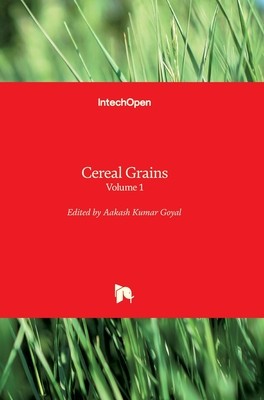
- We will send in 10–14 business days.
- Publisher: IntechOpen
- ISBN-10: 1839691638
- ISBN-13: 9781839691638
- Format: 17 x 24.4 x 1.6 cm, hardcover
- Language: English
- SAVE -10% with code: EXTRA
Cereal Grains (e-book) (used book) | bookbook.eu
Reviews
Description
Over the past 50 years, cereals such as maize, rice, wheat, sorghum, and barley have emerged as rapidly evolving crops because of new technologies and advances in agronomy, breeding, biotechnology, genetics, and so on. Population growth and climate change have led to new challenges, among which are feeding the growing global population and mitigating adverse effects on the environment. One way to deal with these issues is through sustainable cereal production. This book discusses ways to achieve sustainable production of cereals via agronomy, breeding, transcriptomics, proteomics, and metabolomics. Chapters review research, examine challenges, and present prospects in the field. This volume is an excellent resource for students, researchers, and scientists interested in and working in the area of sustainable crop production.
EXTRA 10 % discount with code: EXTRA
The promotion ends in 16d.11:56:53
The discount code is valid when purchasing from 10 €. Discounts do not stack.
- Publisher: IntechOpen
- ISBN-10: 1839691638
- ISBN-13: 9781839691638
- Format: 17 x 24.4 x 1.6 cm, hardcover
- Language: English English
Over the past 50 years, cereals such as maize, rice, wheat, sorghum, and barley have emerged as rapidly evolving crops because of new technologies and advances in agronomy, breeding, biotechnology, genetics, and so on. Population growth and climate change have led to new challenges, among which are feeding the growing global population and mitigating adverse effects on the environment. One way to deal with these issues is through sustainable cereal production. This book discusses ways to achieve sustainable production of cereals via agronomy, breeding, transcriptomics, proteomics, and metabolomics. Chapters review research, examine challenges, and present prospects in the field. This volume is an excellent resource for students, researchers, and scientists interested in and working in the area of sustainable crop production.


Reviews